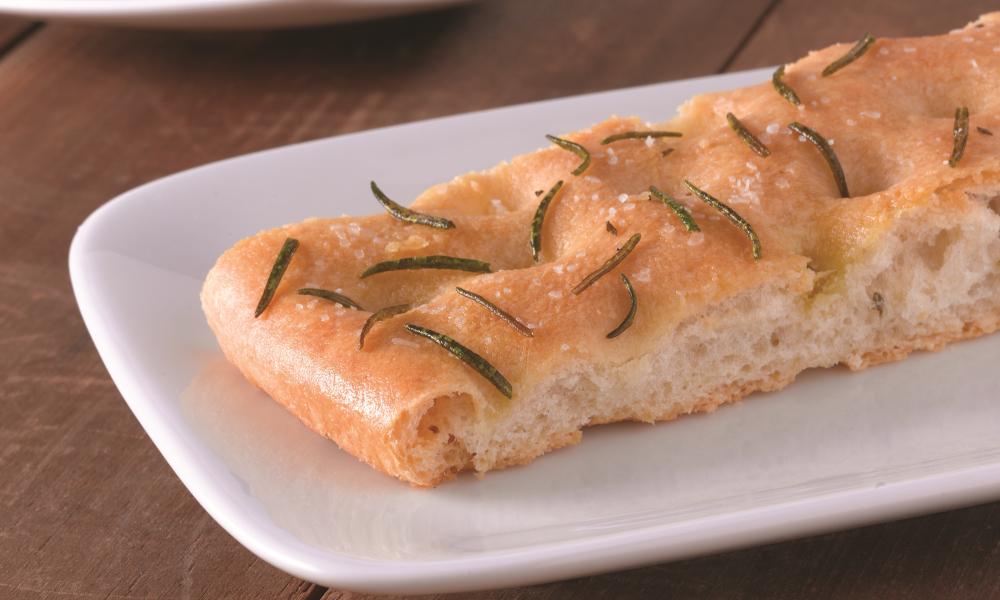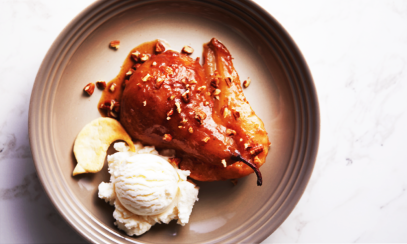
Daily Bread for the Body and Spirit
During the holidays, we can be prone to overindulging between Christmas and New Year festivities. An excessive variety and quantity of food find their way to our tables, making their flavorful contributions to our merriment. I mean, what would Christmas be without the family feast? Ham? Eggnog? Pumpkin pie? Christmas cookies? Need I go on? Well, ironically, it is often afterward, when our Lord’s birthday has passed and we are in the uneventful doldrums of January and February, that I find myself contemplating a healthier (physically and spiritually) perspective on the role of food in our relationship with God.
After the holidays, I typically suffer from what my husband labels “gut-rot.” It comes from having eaten too much rich food. You know you have it when you find yourself craving salads and light soup, instead of more of the same rich food that seemed so tempting just days before. It is the gastronomic equivalent of guilt. Your stomach feels full, your body feels heavy and lethargic and your brain involuntarily starts imagining what the lining of your arteries must look like. During those first few weeks of post-holiday hangover, our family enjoys simple, light meals. Fresh-baked focaccia and a soup or a salad can be a great antidote for gut-rot.
But perhaps there is a spiritual dimension to this annual pattern, too. The First Commandment mandates, “I am the Lord your God, you shall not have any gods before me.”
Like so many other worldly pleasures and distractions that steal our attention from Jesus during the holidays, food itself can become a substitute god. Does the food we prepare, eat and discuss with our friends and relatives really help us honor and celebrate Christ’s arrival? Or is the holiday that celebrates Christ’s arrival a convenient avenue for us to prepare, eat and discuss the foods we love? Sometimes the simple, lighter meals that occupy the dinner table in January feel like the penance that is needed to “right the wrong” of self-gratification.
Don’t get me wrong. There is nothing intrinsically wrong with food in any form. Indeed, our Lord turns himself into food every Sunday. But I think the notion of “daily bread” is an important one. We can use January and February to help us recall the importance and beauty of taking precisely what we need, without consuming to excess. Remember that the manna God gave his chosen people provided exactly what they needed, when they needed it. I enjoy the challenge of preparing simple, healthy and delicious meals that, rather than upstaging or distracting us from God, remind us of his providence and message of moderation and sacrifice. Perhaps for certain meals this January we can come to rejoice in a simple, light bread recipe the way Moses rejoiced when the Lord said to him after hearing the murmurings of his people, “... in the morning you will have your fill of bread, and then you will know that I, the Lord, am your God.
Michelle DiFranco is a designer and the busy mom of two children.
Rosemary focaccia
- 4 cups all-purpose flour (plus extra for kneading)
- 1 package active dry yeast
- 1½ cups warm water (not hot)
- 2 tablespoons extra virgin olive oil (plus more for drizzling)
- 1 teaspoon kosher salt (plus more for sprinkling)
- 1 tablespoon finely chopped rosemary (plus 1-2 whole sprigs for topping off)
In a drinking glass, dissolve yeast and warm water and let stand for about 10 minutes, or until a foam appears. Combine flour, salt and chopped rosemary in a large mixing bowl. Add extra virgin olive oil and the yeast mixture. Combine by hand until dough is moist and elastic. If it is still too wet, add a bit more flour. Knead for about five minutes on a lightly floured surface and form into a ball. Place in a bowl with about a teaspoon of olive oil and roll dough ball until completely coated. Cover bowl with plastic wrap and let rise in a warm place until dough doubles in size. Place dough on a cookie sheet or jelly roll pan and press out to fit pan. Cover with plastic wrap for an additional 20-25 minutes. Remove wrap and use fingertips to press dimples over the top of the pressed dough. Drizzle olive oil over the top and sprinkle kosher salt and rosemary (removed from stems) all over as well. Let stand for an additional 15 minutes and bake at 425 degrees for 20-25 minutes, or until light golden brown on top. Using kitchen scissors, cut into squares.



